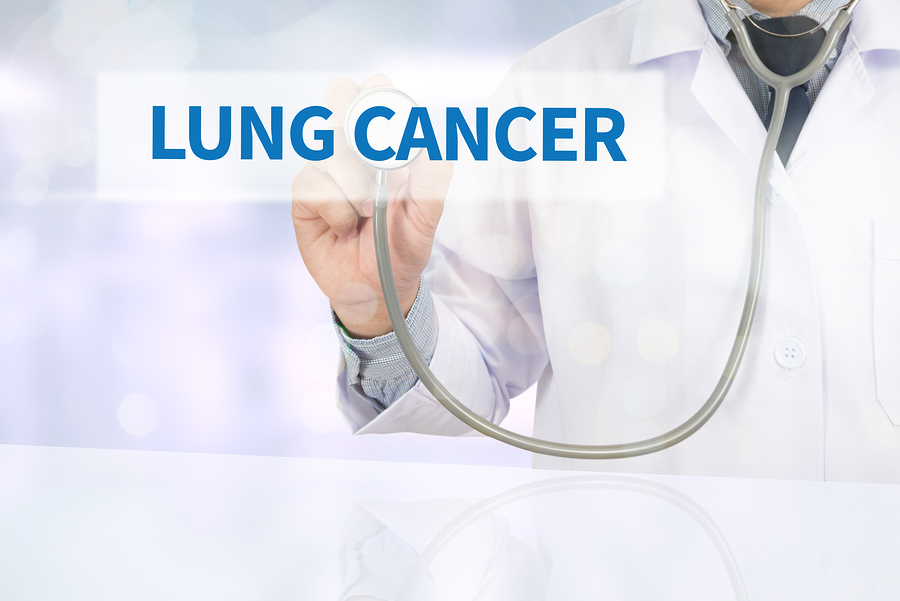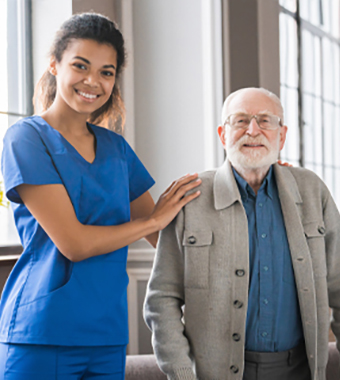Four Things You Need to Know About Lung Cancer
November 1, 2017
Cancer.org reports there are more than 155,000 lung cancer deaths each year. About 66 percent of lung cancer cases are in people over the age of 64. Most people are diagnosed when they're 70. The earlier this cancer is diagnosed, the better the outcome. Take a look at these other facts about lung cancer. Home Care in Los Gatos CA: Things to Know About Lung Cancer
Men Are More Likely to Develop Lung Cancer.
Men are more likely to develop lung cancer. In 2017, there have been approximately 116,000 new cases of lung cancer. Women have had about 105,000 new cases. Lung cancer does seem to be on a decline with both sexes.
Non-Smokers Are Not Immune to Lung Cancer.
Many people think that they can't get lung cancer since they never smoked. Smoking is not the only thing that causes lung cancer. Radon is an odorless gas that exists naturally in the soil. It can get into basements through gaps around water pipes and sump pumps. Radon is the key reason lung cancer occurs in non-smokers.
Exposure to asbestos, high quantities of oil that becomes airborne when you cook, and secondhand smoke are other ways non-smokers can get lung cancer. If you frequently sat around a campfire or bonfire, burned logs in an open fireplace, or barbecued over wood, there's an increased risk of developing lung cancer.
Know the Signs.
The common symptoms of lung cancer include a persistent cough and sometimes coughing up rusty or red mucus. If chest pain worsens when you take a deep breath, it could be lung cancer. Being tired or feeling short of breath are also common. While these can indicate lung cancer, it can also be something like bronchitis, so it's best to see a doctor for further testing.
Doctors Recommend Getting Screened for Lung Cancer.
Most doctors now recommend lung cancer screenings for the elderly. If your parent is past the age of 55, they should talk to their doctor about a low-dose CT scan of the lungs. It's the safe, effective way to catch lung cancer in its earliest stages.
When a parent has lung cancer, help around the house is essential. If radiation or chemo is advised, your mom or dad needs someone to do laundry, housework, and cook meals. Rest is important. If you work, home care professionals offer compassionate care that doesn't take away your parent's need for privacy.
Learn more about the many ways home care helps with lung cancer patients. Call a home care agency now.
Home Care in Los Gatos CA: Things to Know About Lung Cancer
Men Are More Likely to Develop Lung Cancer.
Men are more likely to develop lung cancer. In 2017, there have been approximately 116,000 new cases of lung cancer. Women have had about 105,000 new cases. Lung cancer does seem to be on a decline with both sexes.
Non-Smokers Are Not Immune to Lung Cancer.
Many people think that they can't get lung cancer since they never smoked. Smoking is not the only thing that causes lung cancer. Radon is an odorless gas that exists naturally in the soil. It can get into basements through gaps around water pipes and sump pumps. Radon is the key reason lung cancer occurs in non-smokers.
Exposure to asbestos, high quantities of oil that becomes airborne when you cook, and secondhand smoke are other ways non-smokers can get lung cancer. If you frequently sat around a campfire or bonfire, burned logs in an open fireplace, or barbecued over wood, there's an increased risk of developing lung cancer.
Know the Signs.
The common symptoms of lung cancer include a persistent cough and sometimes coughing up rusty or red mucus. If chest pain worsens when you take a deep breath, it could be lung cancer. Being tired or feeling short of breath are also common. While these can indicate lung cancer, it can also be something like bronchitis, so it's best to see a doctor for further testing.
Doctors Recommend Getting Screened for Lung Cancer.
Most doctors now recommend lung cancer screenings for the elderly. If your parent is past the age of 55, they should talk to their doctor about a low-dose CT scan of the lungs. It's the safe, effective way to catch lung cancer in its earliest stages.
When a parent has lung cancer, help around the house is essential. If radiation or chemo is advised, your mom or dad needs someone to do laundry, housework, and cook meals. Rest is important. If you work, home care professionals offer compassionate care that doesn't take away your parent's need for privacy.
Learn more about the many ways home care helps with lung cancer patients. Call a home care agency now.
If you or your loved one is looking for home care in Los Gatos, CA, please call Familiar Surroundings Home Care.
Santa Clara County: (408) 979-9990
San Mateo County: (650) 353-9777
Santa Cruz County: (831) 480-3990
Sources: https://www.cancer.org/cancer/non-small-cell-lung-cancer/about/key-statistics.html https://cancerstatisticscenter.cancer.org/#!/cancer-site/Lung%20and%20bronchus


